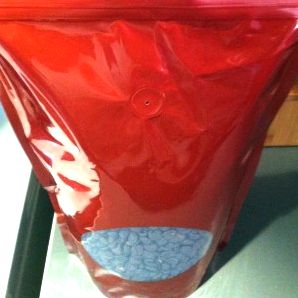
Everyone knows situations are better fresh. But exactly why is coffee fresh from the roast much better than coffee that’s been sitting in stock for any couple of several weeks in the gourmet grocery? Why could it be everything important to check out the “Roast Date” on bags of coffee you purchase at stores? What––scientifically––does “freshness” even mean within the coffee context?
To reply to these questions, we have to dive deep in to the chemistry of the items transpires with espresso beans because of roasting them at high temperatures. As soon while you scorch raw espresso beans in to the scrumptious brown roasts we all know and love, natural flavors, aromas, and soul from the coffee begins to degrade. Essentially, caffeine structure from the beans changes, after a period, they start to lose desirable flavors and aromas, and accumulate undesirable flavors.
One big area of the degeneration process involves the build-up and discharge of co2 (which could produce the beautiful “bloom” during brewing) and also the exchange of certain sulfurous compounds (which lead the exquisite natural flavors and aromas of certain Arabica coffees). Probably the most important compounds, for example sweet-smelling “aldehydes” and earthy “pyrazines,” evaporate very rapidly upon connection with air––even before packaging, as well as under low-oxygen conditions or inside vacuum-sealed bags. The chemical structures inside a raw beans usually stop this from happening, but submitting the bean to high roasting temperatures sets a fuse on freshness.
It’s important to note that physically breaking lower the beans by grinding them, or adding a solvent like water, shortens that fuse even more. This explains why we always recommend freshly-roasted, freshly-ground, and freshly-made coffee because the ways to arrive at agreeable three corresponding opponents of coffee––heat, oxygen, and moisture.
To our gases and compounds. As desirable flavors and aromas leave the beans, their oxidation causes other unwelcome compounds to gather, adding to staleness. Humidity and contact with oxygen can quicken things even further––something particularly important for Electricity-area residents because of the city’s swampy summers.
That stated, even when it’s vital that you enjoy coffee right after roasting, we don’t recommend brewing it as soon as it originates from the roaster. There is really a peak “resting time” following each varietal’s roasting prior to the coffee’s body and signature flavors have a tendency to surface. The first stress of roasting traps considerable amounts of co2 within the beans, which overwhelm the palate with unremarkable “toasted” flavors that drown the how to go about the bean. In short, you do not want espresso beans to deteriorate too much…but should you not allow the degeneration process begin after roasting, you could just be tasting the burnt flavors in the roast itself.
At Commonwealth Joe, we bridge that gap by delivering coffee within 48 hrs of roasting. This way, our coffee continues to be permitted to relax after roasting, but may also be enjoyed before the degeneration processes make an excessive amount of mind way. We’ve found it’s the easiest method to ensure the wealthiest flavors and aromas in each and every brew.
Resourse: http://commonwealthjoe.com/blogs/blog/
Science Project: Coffee
Video COMMENTS:
Nour HAIDAR: Very amazing ^_^ !!
Jonathan Ritter: Nice videos!
Mephistahpheles: Hmm….must try giving my beans a "quick rinse" before brewing. Eliminate some of the acidity and keep the rest.
marioidrovorodri: is it true that the bitterness comes last? can i take the last part and mix the rest?
Женская Красота: Полезная информация!!!
carlos antonio cabo gonzalez: El café es lo importante a la hora del desayuno ó la merienda.
Rozy Nehgah: thumbs up for my puppy picture and rate it please? 1 through 10
Jørgen Lindhardt: Smart måde at tilsmage på!
David O'Brien: Who narrated this video?
AlanGolf: Coffee is suppose to neither be sour or bitter – well brewed coffee is actually a fine balance between the two to create a smooth taste.\n\nThis experiment is to show the different stages in which the flavor of coffee comes out. Normally coffee is brewed over an extended time (about 4-5 minutes). This experiment tries to show what flavors come out during the 4-5 minute brewing duration. Sour flavors come out first, then the more "bitter" and body like flavors.
